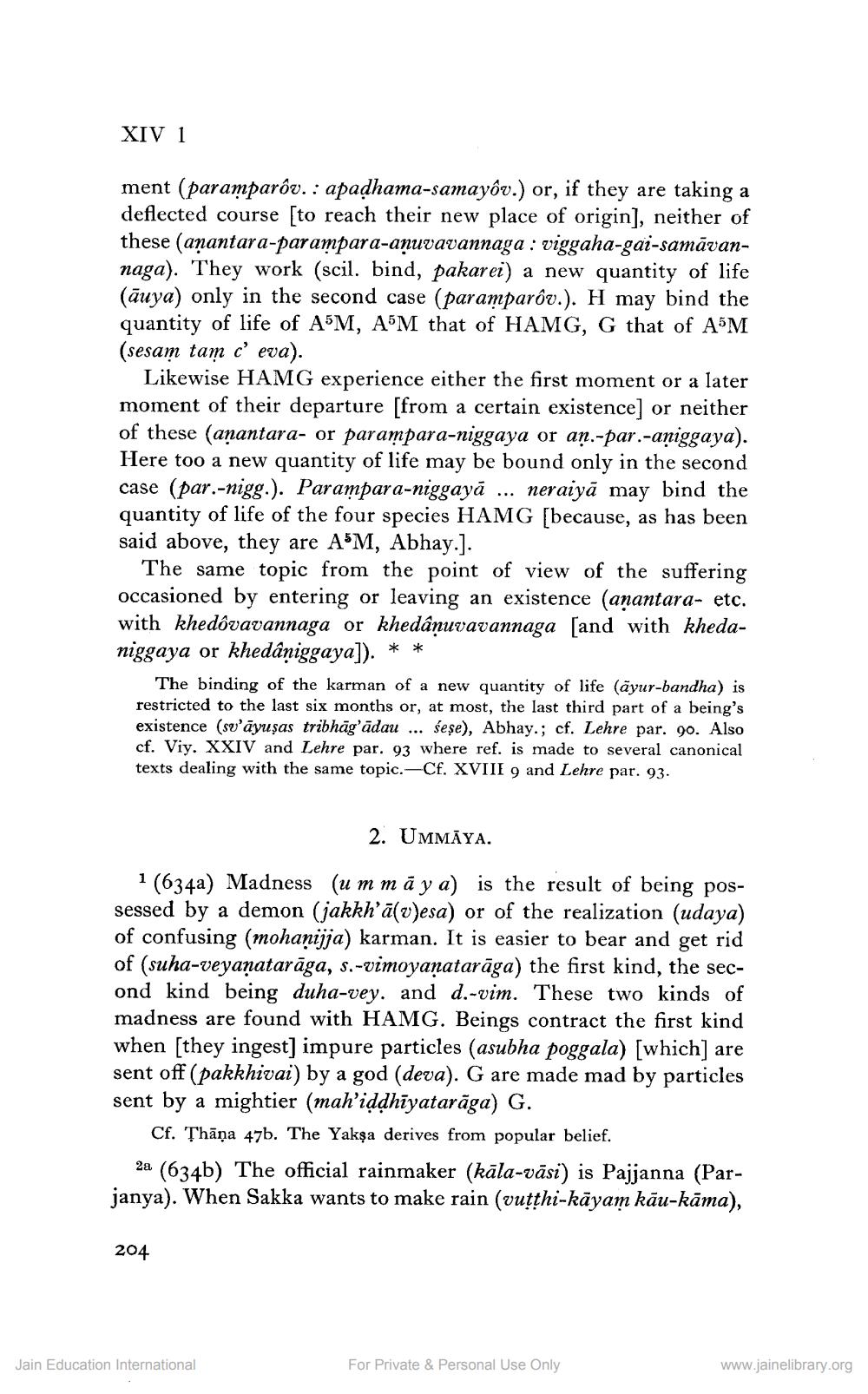________________
XIV 1
ment (paramparóv. : apaļhama-samayôv.) or, if they are taking a deflected course [to reach their new place of origin), neither of these (añantara-parampara-anuvavannaga : viggaha-gai-samāvannaga). They work (scil. bind, pakarei) a new quantity of life (āuya) only in the second case (paramparóv.). H may bind the quantity of life of A5M, AM that of HAMG, G that of A5M (sesam tam c'eva).
Likewise HAMG experience either the first moment or a later moment of their departure [from a certain existence] or neither of these (anantara- or parampara-niggaya or an.-par.-aniggaya). Here too a new quantity of life may be bound only in the second case (par.-nigg.). Parampara-niggayā ... neraiyā may bind the quantity of life of the four species HAMG [because, as has been said above, they are ASM, Abhay.].
The same topic from the point of view of the suffering occasioned by entering or leaving an existence (anantara- etc. with khedôvavannaga or khedânuvavannaga [and with khedaniggaya or khedâniggaya]). * *
The binding of the karman of a new quantity of life (äyur-bandha) is restricted to the last six months or, at most, the last third part of a being's existence (sv'āyuşas tribhāg'ādau ... seșe), Abhay.; cf. Lehre par. 90. Also cf. Viy. XXIV and Lehre par. 93 where ref. is made to several canonical texts dealing with the same topic.-Cf. XVIII 9 and Lehre par. 93.
2. UMMĀYA.
1 (634a) Madness (u m m ā y a) is the result of being possessed by a demon (jakkh'ā(v)esa) or of the realization (udaya) of confusing (mohaņijja) karman. It is easier to bear and get rid of (suha-veyanatarāga, s.-vimoyanatarāga) the first kind, the second kind being duha-vey. and d.-vim. These two kinds of madness are found with HAMG. Beings contract the first kind when [they ingest] impure particles (asubha poggala) [which] are sent off (pakkhivai) by a god (deva). G are made mad by particles sent by a mightier (mah’iddhīyatarāga) G.
Cf. Thāņa 47b. The Yakşa derives from popular belief. 2a (634b) The official rainmaker (kāla-vāsi) is Pajjanna (Parjanya). When Sakka wants to make rain (vuţthi-kāyam kāu-kāma),
204
Jain Education International
For Private & Personal Use Only
www.jainelibrary.org




